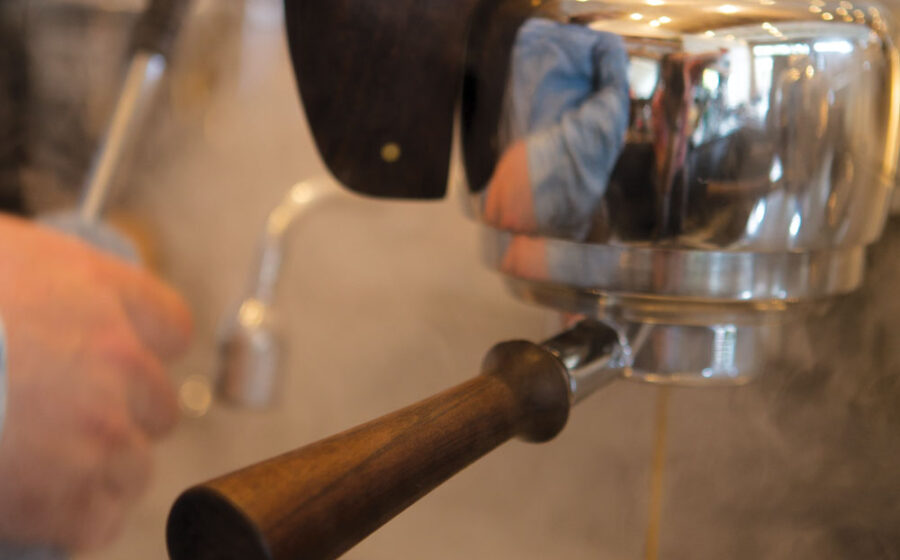[L]ast week’s changes to the US Barista Championship and, more controversially, the nixing of the regional qualifying competitions have been canceled. The decision was made over the weekend at the SCAA’s strategic leadership summit in Atlanta. While the overhaul may have been undone, this does not mean things go status quo ante. “There is no way (regionals) can come back as we have known them,” says Barista Guild executive council president Lorenzo Perkins. “That is a cold, hard reality.”
The announcement was made in press releases from the Barista Guild and from the SCAA board of directors. In the SCAA board note, president Tracy Allen apologized for the communication surrounding the changes and wrote, “While we felt we had made the best decision on behalf of the entire membership, the barista community amplified what the Barista Guild of America Executive Council (BGAEC) had been saying . . . that these events are valuable beyond measure and there may be other solutions for USBC qualifying events.”
I don’t want to make any promises right now I’m not going to be able to keep. I don’t know right now what this is going to look like. I know what I want it to look like. I know what I hope comes of it.
The Barista Guild will convene a committee by July thirteenth “with the goal of presenting a solution for USBC qualifying events by September,” according to Perkins’ announcement. The committee will include members of the Barista Guild’s executive committee, the SCAA board, the SCAA competitions committee, SCAA staff, and USBC sponsors.
Improved communication was the theme of both press releases and conversations today with Perkins and Allen. Among social media outcry, many SCAA and Barista Guild members were alarmed that their first inkling of regionals being in trouble was when they learned of their cancelation, when the press release was issued through Sprudge. (That decision to bypass other industry publications became its own mini controversy, in large part because it’s common practice for press releases to be issued widely, especially when coming from industry-governing bodies.)
The wider coffee community wasn’t alone in being surprised. Last week, Perkins told Fresh Cup he had found out about the details of the planned changes less than twenty-four hours before the announcement. Even Allen was taken aback. In an interview, he said he had known for years that the regional competitions would need to be rejiggered because of their costs, and a short talk by SCAA executive director Ric Rhinehart during a finance meeting earlier this year had indicated they were likely headed to the chopping block. At least Allen thought that was message. Rhinehart, for his part, had believed he told the board the axe was ready to drop. Which it did when the board approved the SCAA’s budget.
At the summit, the board directed the SCAA staff to improve its communication, both internally and with membership. “The staff took a lot of hits over the weekend,” says Allen. “The staff was very humble and quick to admit missteps.” He added later, “It wasn’t a weekend of disciplining anybody. It was owning the mistake, show us you’re interested in finding a way to improve, and let’s find a way to make it better.”
What Allen and Perkins stress is that identifying the financial shortcomings of regionals was not among the missteps. “These regional competitions have not been economically viable for a long period of time,” Perkins says. “Where we stand right now is at an opportunity to take a really hard look at it and put absolutely everything on the table—as far as what we can do, what we should do, what it might look like, what it might sound like—that would be able to save some type of qualifying structure for the USBC.”
That’s as detailed as the plan gets, for now. This was, in many ways, the situation the original decision had hoped to avoid. Last week, Heather Perry, the SCAA board’s second vice president, said the decision had to come down quickly and decisively before competitors were too far into their preparation for regionals. No replacements had been planned, she said, because “it would have just been thrown together.”
The USBC structure would have been like having the World Cup seeded with the first twenty countries and twelve groups of dudes who could tweet goal!—strange, possibly amusing, likely embarrassing, and certainly not the best slate of competitors.
That left the USBC berths to be filled with a first come, first serve system, including twelve slots for “anyone interested in competing.” That, more than any other element of the announcement, seemed doomed, even if regionals garnered more outrage. The USBC structure would have been like having the World Cup seeded with the first twenty countries and twelve groups of dudes who could tweet goal!—strange, possibly amusing, likely embarrassing, and certainly not the best slate of competitors. The goal of the July thirteenth committee is just as much about maintaining the USBC’s competitiveness as it is about resolving the changes the SCAA says must happen to regionals.
Perkins, after a week of seeing the backlash of bad communication, won’t guarantee the outcome of the committee he’s forming.
“I’m a guy who likes to under promise and over deliver,” Perkins says. “I don’t want to make any promises right now I’m not going to be able to keep. I don’t know right now what this is going to look like. I know what I want it to look like. I know what I hope comes of it. But right now the thing immediately before our faces and in our hands is the ability to create this committee and bring in people who weren’t brought in before, to listen to their voices.”
Ideas for the future barista competitions can be sent to events@scaa.org or by using the hashtag #BGAvoice.















